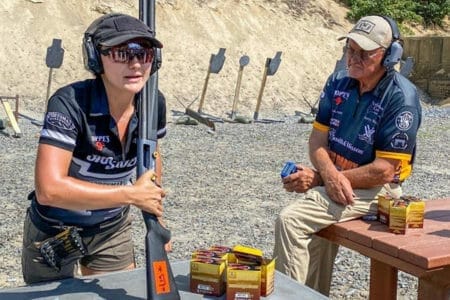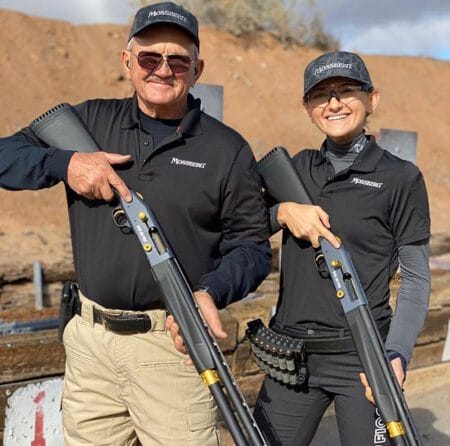France –-(Ammoland.com)- The International Practical Shooting Confederation (IPSC) Shotgun World Shoot III 2018 came to an end on June 10, 2018 in France, when the glorious awards ceremony took place in the Hall des Expositions de Belle-Isles in Chateauroux. The IPSC Shotgun World Championship, the third one of this discipline, was organised from May 28 to June 10 by the French Shooting Federation on its brand new shooting range (CNTS) in Chateauroux-Deols.
“France has always had a long and important tradition in IPSC going as far back as the very early beginnings of IPSC shooting. Under the supervision and guidance of Mr Philippe Crochard and Mr Alain Joly IPSC shooting in France has always been known for the high degree of competition, superb courses of fire, flawless organization, and unequalled hospitality. In 2018, like last year, Mr Stephane Quertinier the Regional Director and his very good crew once again have provided a wonderful and exciting competition. I would like to extend my appreciation and gratitude to these gentlemen and to the French Shooting Federation who are responsible for hosting this World Shoot event”, said IPSC President Mr Vitaly Kryuchin.
For two weeks, 656 athletes from 40 countries competed in the 30 shooting bays of the National Sports Shooting Centre. They were divided into five categories – Lady, Junior, Overall, Senior and Super-Senior within four different divisions, depending on the type of firearm used: Open, Standard, Standard Manual and Modified.
The theme of the competition was “From Big Bang to Space Conquest”. Each of the five areas of shooting correspondwith a period from the evolution of humanity and included six courses of fire.
The IPSC Shotgun World Shoot 2018 was supervised by more than sixty international referees (IROA) and by fifty national referees (NROI), respectively overseen by the Range Master José Carlos Belino (Brazil), and his assistant Christophe Desfrançois (France).
IPSC Shotgun was born over 30 years ago and offers spectacular shooting challenges. Several types of courses are used: short (up to 12 scoring hits), medium (up to 24 scoring hits) and long (up to 32 scoring hits) with various shooting distances. Targets are made of paper, clay or metal and can be fixed, mobile or have a cycle of appearance / disappearance. Practical Shooting requires great dexterity in the handling of firearms and also requires strict compliance with safety rules, under penalty of disqualification. Internationally, this discipline is administered by the International Practical Shooting Confederation (IPSC).
About the International Practical Shooting Confederation (IPSC)
The International Practical Shooting Confederation (IPSC)was founded in 1976 as a shooting sport and today recognizes all the main shooting disciplines – Handgun, Rifle, Shotgun, and Action Air. The Latin words Diligentia, Vis, Celeritas (DVC) meaning accuracy, power, and speed are IPSC’s motto and form the foundation for competition. IPSC also emphasizes procedures for safe gun handling and strict adherence to the rules governing the sport. In IPSC courses of fire the results are calculated by dividing the competitor’s target score by the time taken to complete the course of fire. The shooter must be the most accurate and fastest to win. Courses of fire utilize many aspects not found in the more traditional shooting disciplines such as movement by the shooter, moving targets, multiple targets, and the freedom for the shooter to solve the shooting challenges presented in the courses of fire. In practical shooting the competitor shoots at multiple targets from multiple distances on time. Therefore, competitions are very exciting for competitors and interesting for spectators. 105 countries (IPSC Regions) are members of the Confederation and actively organize IPSC Matches. The number of active IPSC competitors worldwide exceeded 200,000 in 2017 with 351 IPSC national and international sanctioned matches held.






